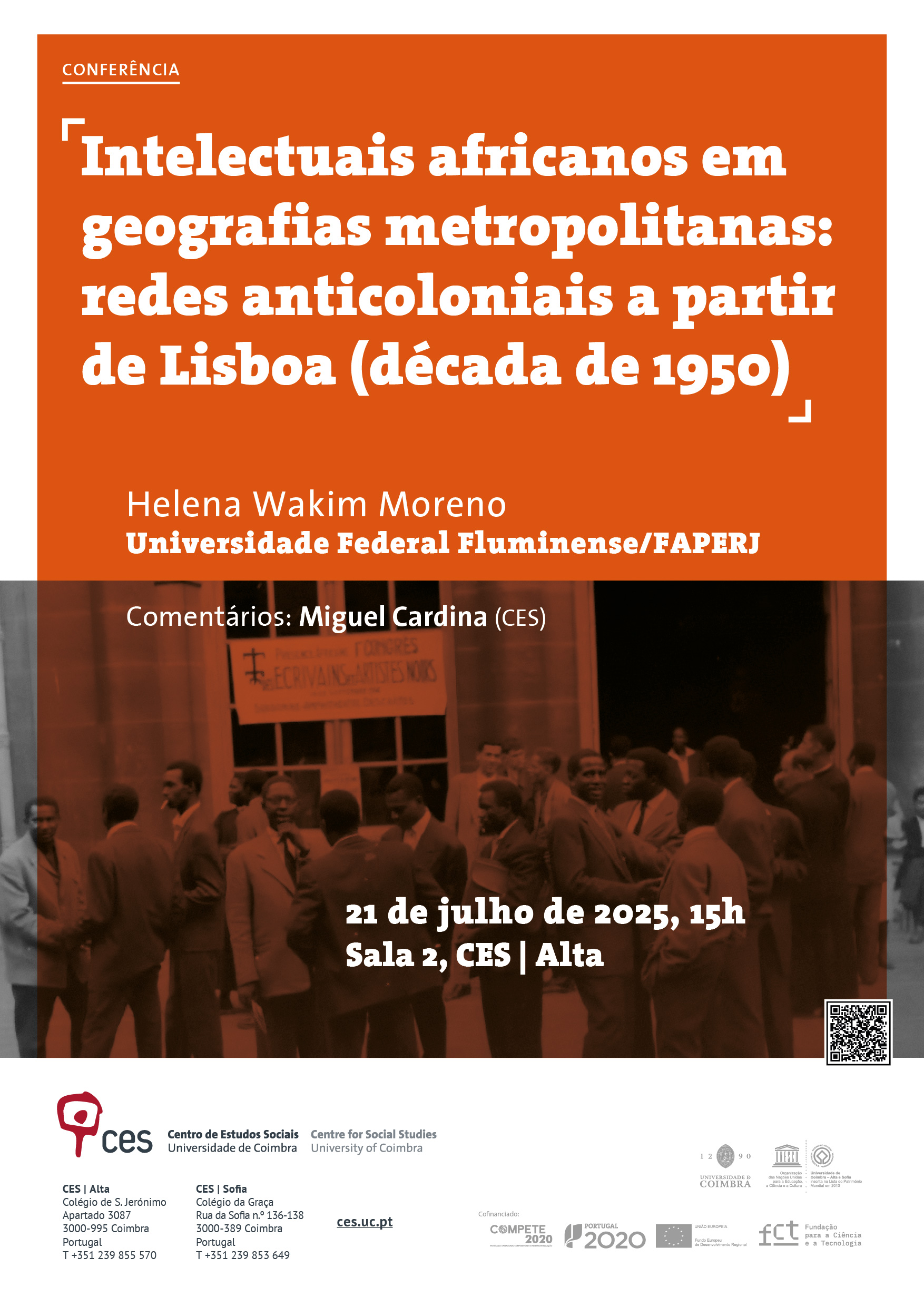Lecture
African intellectuals in metropolitan geographies: anti-colonial networks from Lisbon (1950s)
Helena Wakim Moreno (Universidade Federal Fluminense/FAPERJ)
July 21, 2025, 15h00
Room 2, CES | Alta
The 1950s are often portrayed in studies on the African continent, and more broadly on the Global South, as a context of strong growth in anti-colonial ideas and discourses. In recent decades, new approaches have proposed rethinking the geography of anti-colonial insurgencies, demonstrating how encounters and networks woven from Europe played prominent roles in the dynamics of the South.
In this context, African political and intellectual networks woven clandestinely from Lisbon in and from the Casa dos Estudantes do Império (CEI) and by the Movimento Anticolonialista (MAC) proved decisive not only in the training of their agents but also in publicising on an international scale the abuses committed by Portuguese colonialism in Africa, since the former Portuguese empire was the only colonial empire in the 20th century to exercise uninterrupted censorship both in the territories under colonial rule and in the metropolis.
Based on a varied documentary typology, taking into account the social markers of difference and questioning the “meanings of the colonial archive”, a preliminary mapping of these networks will be presented, as well as the internal and external mechanisms of their construction, pointing out the silences and exclusions present in this process.
Comments: Miguel Cardina (CES)
Bio note
Helena Wakim Moreno is pursuing her postdoctoral studies in the Graduate Programme in History at the Federal University of Fluminense with funding from FAPERJ. For her doctoral thesis (2022), defended in the Graduate Programme in Social History at the University of São Paulo, she received, among other distinctions, the 25th Mário Soares-EDP Foundation Award. She is currently Coordinator of the African History Working Group at ANPUH-SP and is an Associate Researcher at the Centre for African Studies at USP.


